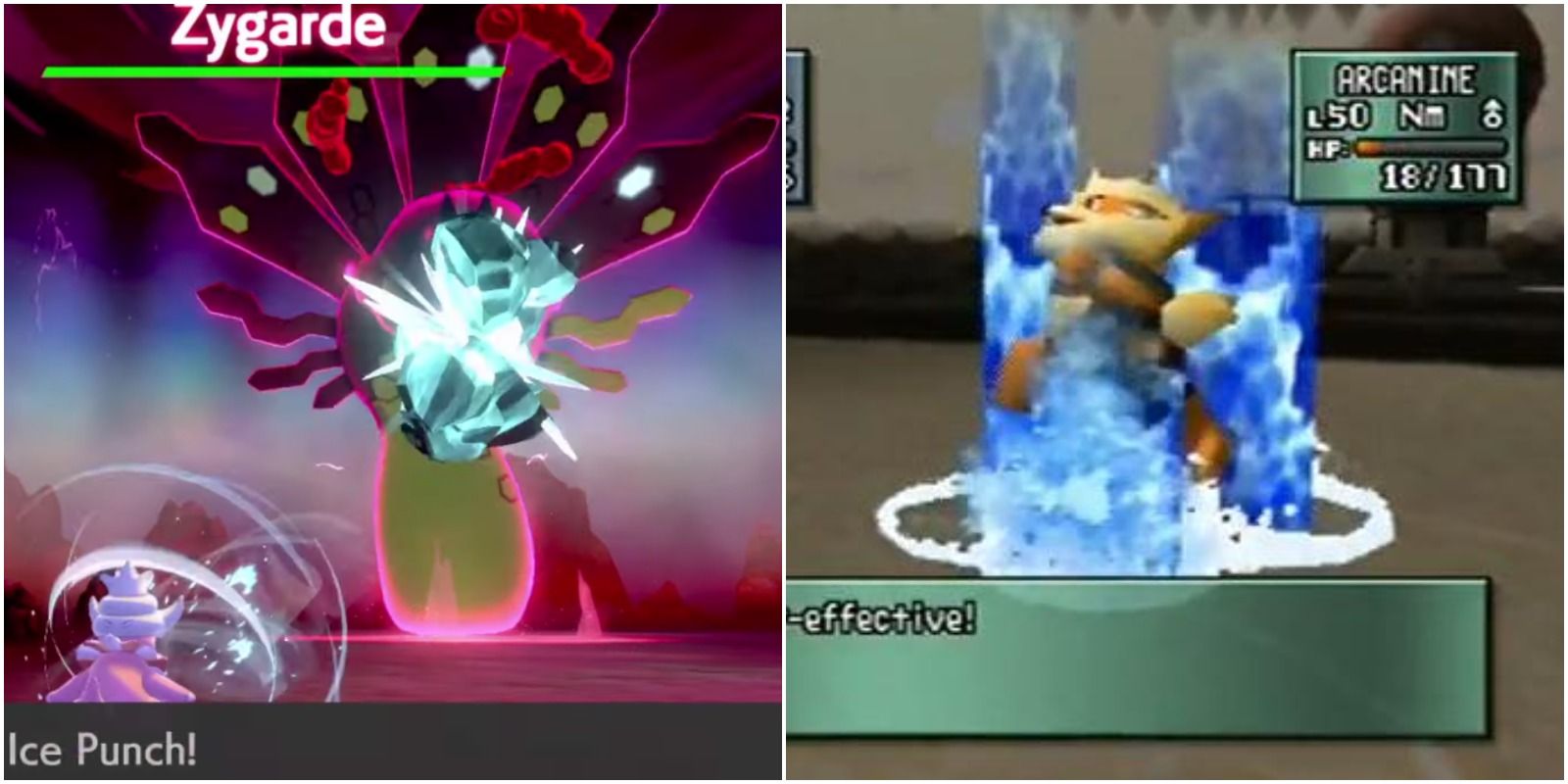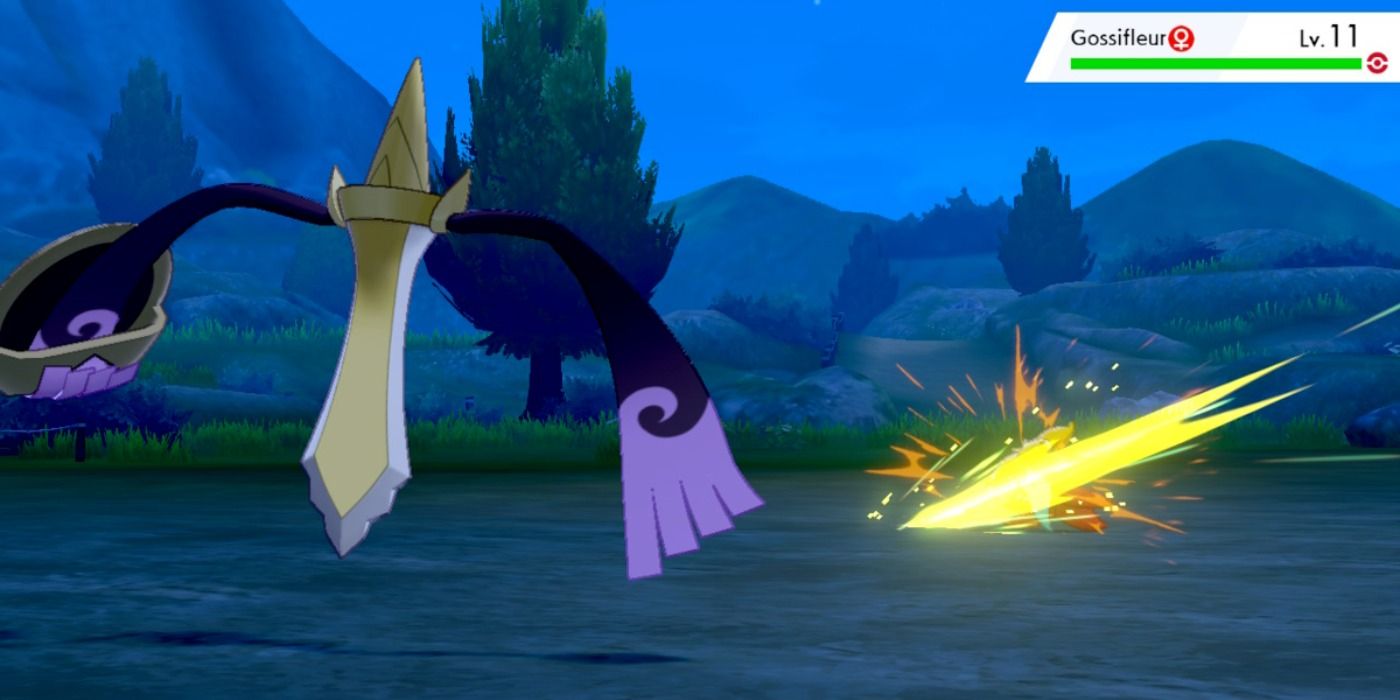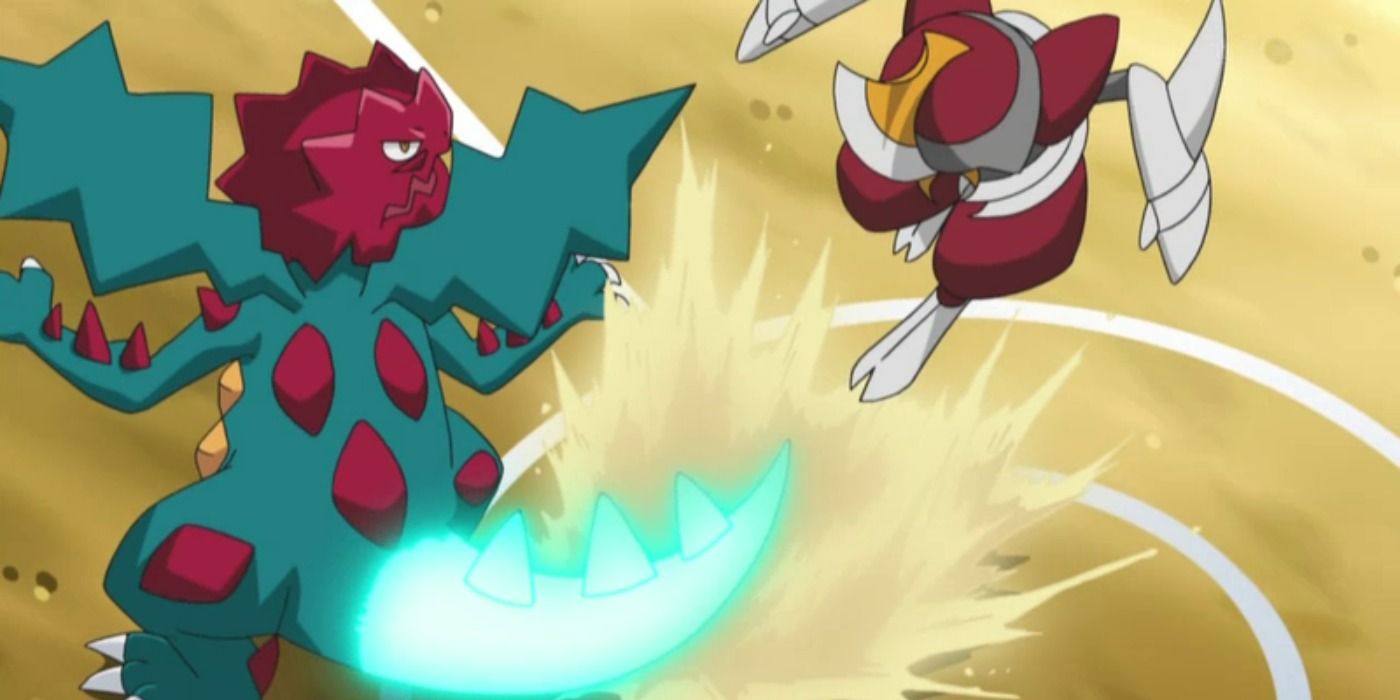As one of the most dominant mechanics in the Pokemon franchise, Type Effectiveness has been hardwired into the minds of every self-respecting trainer, including those currently enjoying Pokemon Sword & Shield. This mechanic is mostly an intuitive way to fairly pit all of the different elemental types in the game against one another and has followed a relatively consistent trend in the main series games over the years.
However, there are variations of Type Effectiveness for any given battle scenario that can occur in Pokemon Sword & Shield, so players would do well to learn them all. Smart trainers will be able to use Type Effectiveness to their advantage when using damage-dealing moves, but the very best will be able to use this knowledge for much more.
Every Kind Of Type Effectiveness
Super Effective
This term refers to when an attacker uses a move that does x2 damage against a defending pokemon as a result of the Type Effectiveness. For example, an Aegislash using the Bug-type move Fury Cutter on the Grass-type Gossifleur will land a Super Effective hit.
This kind of effectiveness also has another stage, where the damage multiplier will be a massive x4 against the defending pokemon. As another example, an Aegislash using the Bug-type move Fury Cutter on the Psychic and Dark-type Malamar will land a Super Effective hit, but it will do x4 damage instead of x2.
Not Very Effective
This term refers to moves used by an attacking pokemon that deals only 1/2 the damage due to a poor type match-up. For example, an Aegislash using the Bug-type move Fury Cutter on the Fire-type Typhlosion would deal only 1/2 the damage.
Furthermore, there is another level to being Not Very Effective, as using a move that is ineffective against both of a defender's types will result in the attack dealing only 1/4 of the possible damage. This is something that would occur if, for example, an Aegislash were to use the Bug-type move Fury Cutter against the Fire and Steel-type Heatran.
Neutral Effectiveness
Also going by terms like "regular damage" or "normal damage", Neutral Effectiveness is when there are no positive or negative modifiers to a move made by an attacking pokemon against a defending one. Keeping with the same example setup, an Aegislash using the Bug-type move Fury Cutter on the Water-type Blastoise will deal damage that is unaffected by the "Type" factor in the Damage Calculation Equation run by the game each time that a damage-dealing move is used.
Additionally, if an attack would be Super Effective against one of the defending pokemon's types, but Not Very Effective against the other, the attacking move would result in Neutral Effectiveness, such as if an Aegislash using the Bug-type move Fury Cutter attacks the Fire and Psychic-type Delphox.
Immunity
There are some types that are immune to others, meaning that regardless of additional type match-ups, a defending pokemon that has at least 1 type immune to the attacking move will always be completely unaffected by it.
Unfortunately, the attacking Aegislash using Fury Cutter example won't work here, however, if Aegislash was the defending pokemon, since it's part Steel-type, it would be completely unaffected by any incoming Poison-type moves.
Pokemon Generation 8 Type Effectiveness Table Chart
By taking a look at the table below, trainers will be able to see how each type in the current main series Pokemon games matches up against one another. The attacking pokemon are the rows (bolded) and the defenders are the columns (italicized). Read this table as if each match-up involves an attacker is using a damage-dealing move against a defender of the chosen type(s).
|
Attacker x Defender |
Normal |
Grass |
Fire |
Water |
Electric |
Ground |
Fighting |
Flying |
Psychic |
Bug |
Fairy |
Dark |
Steel |
Dragon |
Rock |
Ghost |
Ice |
Poison |
|
Normal |
x1 |
x1 |
x1 |
x1 |
x1 |
x1 |
x1 |
x1 |
x1 |
x1 |
x1 |
x1 |
x1/2 |
x1 |
x1/2 |
x0 |
x1 |
x1 |
|
Grass |
x1 |
x1/2 |
x1/2 |
x2 |
x1 |
x2 |
x1 |
x1/2 |
x1 |
x1/2 |
x1 |
x1 |
x1/2 |
x1/2 |
x2 |
x1 |
x1 |
x1/2 |
|
Fire |
x1 |
x2 |
x1/2 |
x1/2 |
x1 |
x1 |
x1 |
x1 |
x1 |
x2 |
x1 |
x1 |
x2 |
x1/2 |
x1/2 |
x1 |
x2 |
x1 |
|
Water |
x1 |
x1/2 |
x2 |
x1/2 |
x1 |
x2 |
x1 |
x1 |
x1 |
x1 |
x1 |
x1 |
x1 |
x1/2 |
x2 |
x1 |
x1 |
x1 |
|
Electric |
x1 |
x1/2 |
x1 |
x2 |
x1/2 |
x0 |
x1 |
x2 |
x1 |
x1 |
x1 |
x1 |
x1 |
x1/2 |
x1 |
x1 |
x1 |
x1 |
|
Ground |
x1 |
x1/2 |
x2 |
x1 |
x2 |
x1 |
x1 |
x0 |
x1 |
x1/2 |
x1 |
x1 |
x2 |
x1 |
x2 |
x1 |
x1 |
x2 |
|
Flying |
x1 |
x2 |
x1 |
x1 |
x1/2 |
x1 |
x2 |
x1 |
x1 |
x2 |
x1 |
x1 |
x1/2 |
x1 |
x1/2 |
x1 |
x1 |
x1 |
|
Fighting |
x2 |
x1 |
x1 |
x1 |
x1 |
x1 |
x1 |
x1/2 |
x1/2 |
x1/2 |
x1/2 |
x2 |
x2 |
x1 |
x2 |
x0 |
x2 |
x1/2 |
|
Psychic |
x1 |
x1 |
x1 |
x1 |
x1 |
x1 |
x2 |
x1 |
x1/2 |
x1 |
x1 |
x0 |
x1/2 |
x1 |
x1 |
x1 |
x1 |
x2 |
|
Bug |
x1 |
x2 |
x1/2 |
x1 |
x1 |
x1 |
x1/2 |
x1/2 |
x2 |
x1 |
x1/2 |
x2 |
x1/2 |
x1 |
x1 |
x1/2 |
x1 |
x1/2 |
|
Fairy |
x1 |
x1 |
x1/2 |
x1 |
x1 |
x1 |
x2 |
x1 |
x1 |
x1 |
x1 |
x2 |
x1/2 |
x2 |
x1 |
x1 |
x1 |
x1/2 |
|
Dark |
x1 |
x1 |
x1 |
x1 |
x1 |
x1 |
x1/2 |
x1 |
x2 |
x1 |
x1/2 |
x1/2 |
x1 |
x1 |
x1 |
x2 |
x1 |
x1 |
|
Steel |
x1 |
x1 |
x1/2 |
x1/2 |
x1/2 |
x1 |
x1 |
x1 |
x1 |
x1 |
x2 |
x1 |
x1/2 |
x1 |
x2 |
x1 |
x2 |
x1 |
|
Dragon |
x1 |
x1 |
x1 |
x1 |
x1 |
x1 |
x1 |
x1 |
x1 |
x1 |
x0 |
x1 |
x1/2 |
x1 |
x1 |
x1 |
x1 |
x1 |
|
Rock |
x1 |
x1 |
x2 |
x1 |
x1 |
x1/2 |
x1/2 |
x2 |
x1 |
x2 |
x1 |
x1 |
x1/2 |
x1 |
x1 |
x1 |
x2 |
x1 |
|
Ghost |
x0 |
x1 |
x1 |
x1 |
x1 |
x1 |
x1 |
x1 |
x2 |
x1 |
x1 |
x1/2 |
x1 |
x1 |
x1 |
x2 |
x1 |
x1 |
|
Ice |
x1 |
x2 |
x1/2 |
x1/2 |
x1 |
x2 |
x1 |
x2 |
x1 |
x1 |
x1 |
x1 |
x1/2 |
x2 |
x1 |
x1 |
x1/2 |
x1 |
|
Poison |
x1 |
x2 |
x1 |
x1 |
x1 |
x1/2 |
x1 |
x1 |
x1 |
x1 |
x2 |
x1 |
x0 |
x1 |
x1/2 |
x1/2 |
x1 |
x1/2 |



